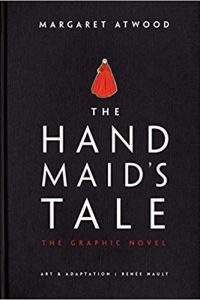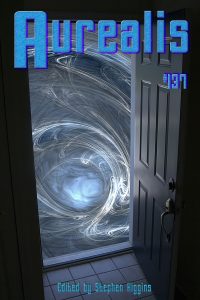Gwenda Bond reviews Robin Wasserman
 What do you get when you combine hypersmart teenagers trying to crack the uncrackable Voynich manuscript, letters from the infamous alchemist and conjurer Edward Kelley’s daughter, a mysterious secret society or two, and chase scenes set in a pitch-perfect modern Prague? Funny you should ask. Robin Wasserman’s sinister, twisty new literary thriller The Book of Blood and Shadow is such a perfect specimen that it’s hard to believe it didn’t exist until now. Published as YA and sure to appeal to many teens, this sophisticated, exquisitely crafted book should also find a ready cross-over audience of adult readers. But I’m getting ahead of myself.
What do you get when you combine hypersmart teenagers trying to crack the uncrackable Voynich manuscript, letters from the infamous alchemist and conjurer Edward Kelley’s daughter, a mysterious secret society or two, and chase scenes set in a pitch-perfect modern Prague? Funny you should ask. Robin Wasserman’s sinister, twisty new literary thriller The Book of Blood and Shadow is such a perfect specimen that it’s hard to believe it didn’t exist until now. Published as YA and sure to appeal to many teens, this sophisticated, exquisitely crafted book should also find a ready cross-over audience of adult readers. But I’m getting ahead of myself.
Protagonist and narrator Nora draws the reader in immediately: ‘‘I should probably start with the blood.’’ But she doesn’t, explaining that starting there – on the night of another major character’s murder – would be starting in the middle, robbing the story of its necessary context, however painful providing that context is. By using this approach, Wasserman lets the reader know immediately that the stakes here are huge – life and death – and that our narrator is incredibly intelligent and analytical, both extremely important in the scheme of this novel. As Nora goes on, she tells us it all began with the book. A scholarship student at a private school in her senior year, Nora is a gifted translator of Latin and has been convinced by her best friend Chris to sign on for a project at his college. He and his roommate Max are working with a professor known as ‘‘The Hoff,’’ who is obsessed with solving the mystery of the Voynich manuscript – a real-world work believed to date to the 15th century and written in a strange, unknown language. The world’s best translators and cipher-breakers have tried and failed to decode its secrets. Nora, meanwhile, is assigned to translate the letters of Edward Kelley’s daughter, Elizabeth Weston, a task perceived as less important. Nora identifies many parallels between her own life and Weston’s, beginning to feel close to her through what Chris’s girlfriend and Nora’s friend Adriane – who isn’t part of the project – refer to as ‘‘the dead-girl letters,’’ disappointed that they never seem to include anything interesting, like sexual exploits.
Finally, Nora makes a discovery in the letters that might point the way not just to translating the Voynich manuscript but to a machine constructed by Kelley called the Lumen Dei that would link humanity to God. Nora also starts dating Max, a brief burst of happiness before things begin to unravel. The office experiences a break-in, then the Hoff has a stroke, and, finally, Chris ends up dead. Max disappears under suspicion of being the murderer, and Nora is grieving and more or less alone – except someone may be following her. Chris’s cousin Eli shows up, and eventually she, Adriane, and Eli end up looking for Max in a Prague haunted by old magic. Nora’s connection to Elizabeth Weston may be the key to a dangerous, centuries-old mystery… or the mystery itself may be lunacy, and the friends may have been targeted by devoted lunatics.
As we get to know Nora and her friends, Wasserman builds their relationships and personalities so that the reader feels as close to Nora – to all of them, really – as Nora does to Elizabeth. Nora proves an engaging, sympathetic character, all the more so because of her dry wit and perfectly aimed observations. I suspect her intelligence will summon some of the usual complaints that surface when YA characters show a certain kind of maturity or smarts or even just a big vocabulary. Those complaints would be even more off-base than usual here, willfully ignoring that these are very specific characters in a very specific story. Add to that the fact that Nora has lost her older brother, Andy, in a car accident, a loss that colors the way she experiences everything, and I believed in the character completely.
Many, many books have been touted as the next The Da Vinci Code, almost all of them terrible. What those comparisons usually seem to mean, in my experience, is that the books in question are working with some of the same elements – elements which are deeply enjoyable when done well, and which are, unfortunately, rarely done well. Centuries-old societies lurking in the shadows, hidden messages encoded or buried or perhaps lost and recovered, and always, always high stakes intrigue and a race against the clock – these are a few of my favorite things. While comparisons of The Book of Blood and Shadow to The Da Vinci Code and (more aptly) Donna Tartt’s The Secret History are inevitable, the invoking of those other books shortchanges this one. Wasserman has delivered a remarkably involving page turner that has important things to say about the mysteries of the universe and the destructive force of belief. It may be in conversation with those books and others, but it’s also completely, satisfyingly itself.







